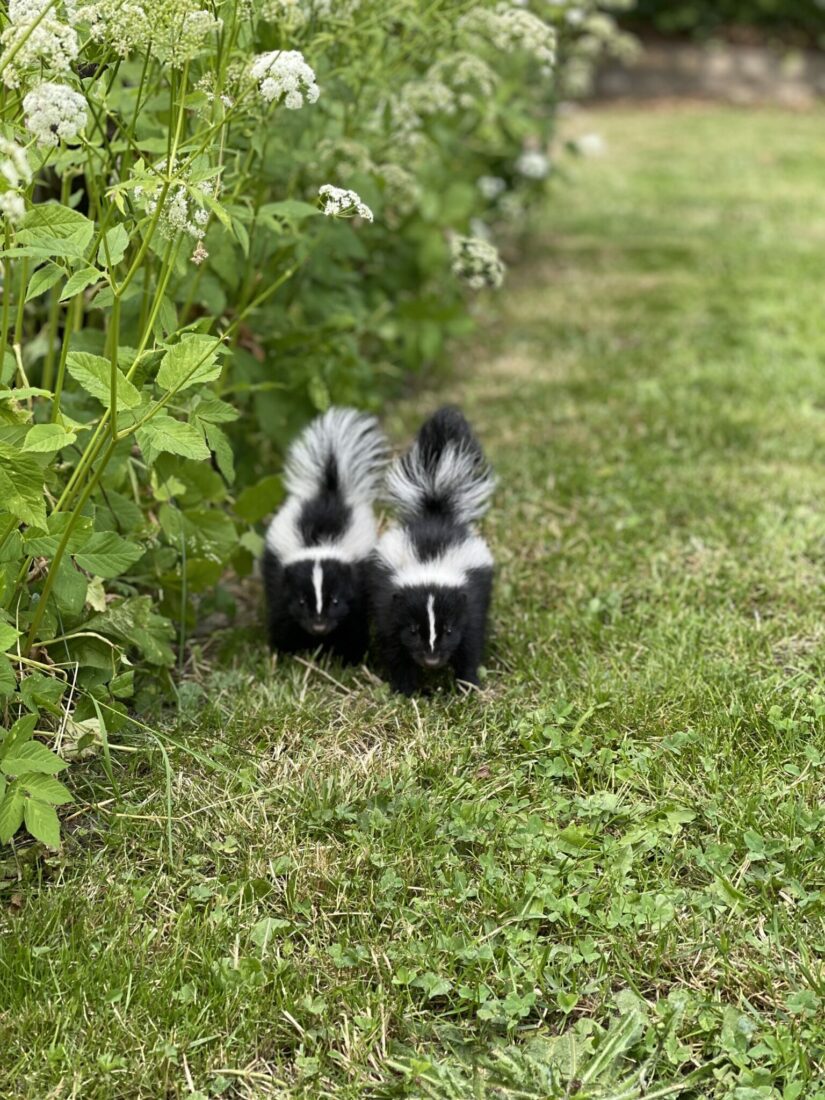Coexisting with wild animals
Raccoons may establish a toilet or “latrine” site in backyards. Raccoons are not carriers of rabies in B.C., but their poop may contain raccoon roundworm eggs that can be dangerous to people and pets. Try using motion-sensor lights or sprinklers to prevent raccoons from using your backyard as a toilet.
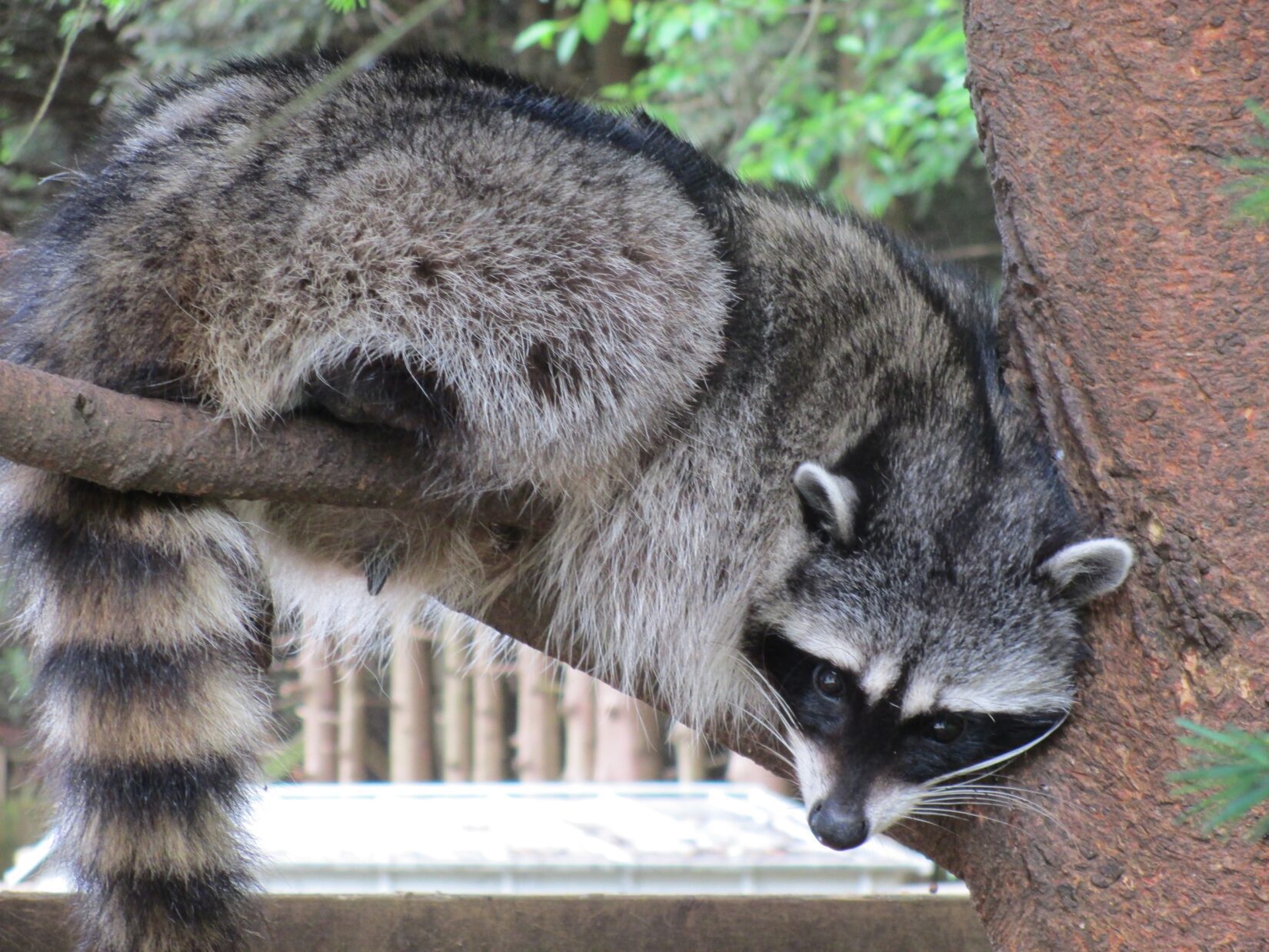
To clean raccoon poop on your property:
Avoid direct contact with the feces, and wear gloves and a face mask for protection. Scoop the feces up using a plastic bag or shovel, close tightly and place in the garbage.
Use heat to kill roundworm eggs:
- Use boiling water to destroy any roundworm eggs on every surface or item that touched the feces.
- If you can’t use boiling water on the surface or item, using a 10% bleach solution will dislodge roundworm eggs so they can be rinsed away. Note that beach will not destroy roundworm eggs.
- Flaming with a propane torch is also effective, but use with caution to avoid injury, damage, or starting a fire. Do not attempt to flame any surfaces that could melt or catch fire, and check the regulations of your local fire department and municipality in advance.
Find out more about preventing raccoon roundworm and identifying and cleaning raccoon latrines (CDC).
If you need help getting a raccoon out of your house, call an AnimalKind company. For more information on managing raccoons, read or print our best practices (PDF).
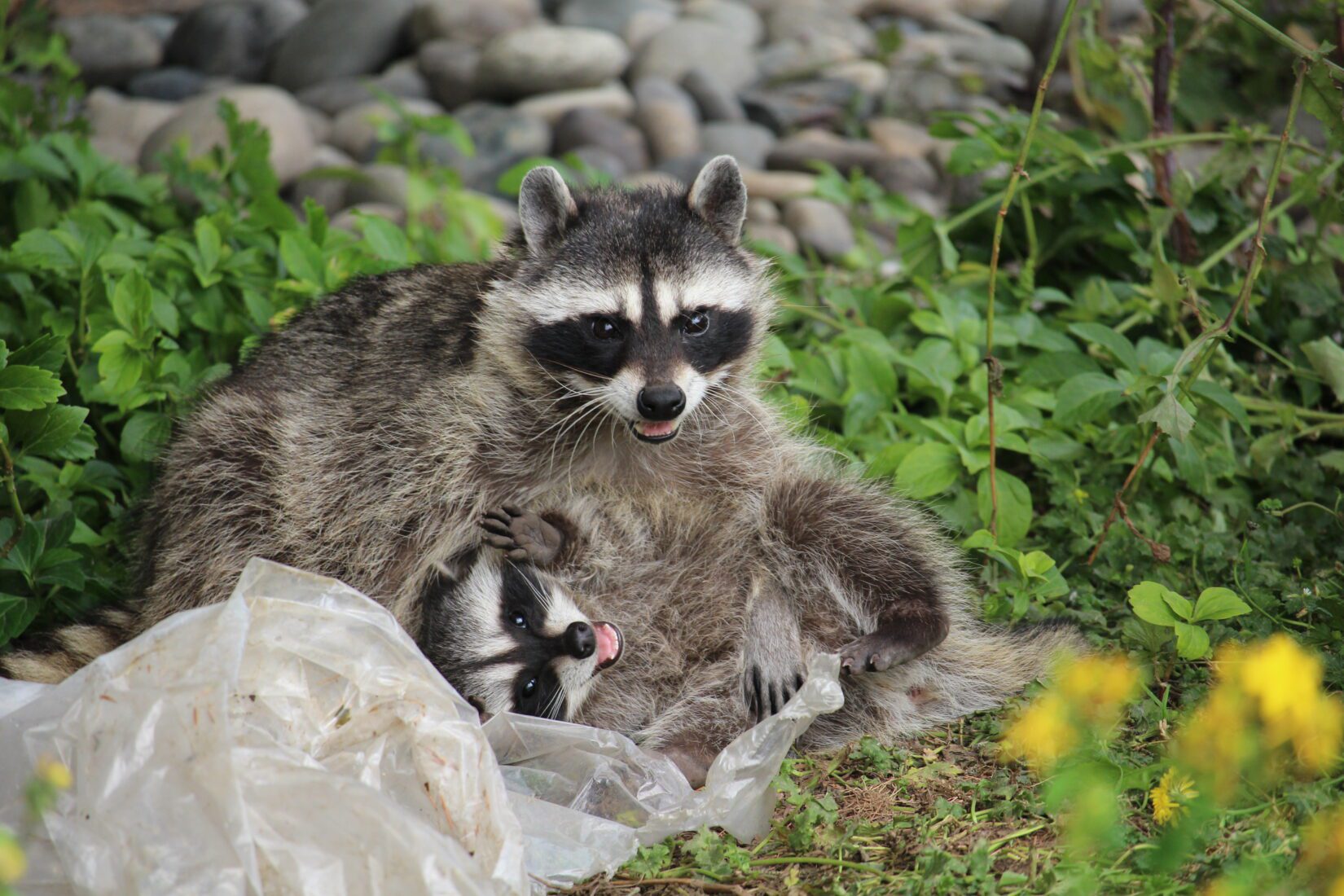
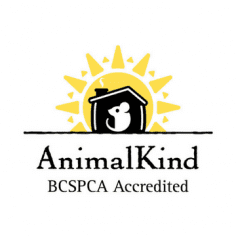 Any company can call themselves “humane” – but like many food-labelling claims, it doesn’t mean they are using animal-friendly methods. To help make your choice easy, the BC SPCA developed AnimalKind.
Any company can call themselves “humane” – but like many food-labelling claims, it doesn’t mean they are using animal-friendly methods. To help make your choice easy, the BC SPCA developed AnimalKind.
AnimalKind is the first-ever animal welfare accreditation for pest control companies. AnimalKind companies meet the BC SPCA’s science-based standards (PDF) and have to pass an audit before they are accredited.
Call an AnimalKind company to help you with rodents and other wildlife in your home.
If AnimalKind companies are not yet available in your area, make sure to ask the following questions before hiring a company:
- “Do you trap and relocate wildlife?” A good wildlife control company prioritizes prevention and exclusion and only releases wildlife in their home range when exclusion techniques are not possible. In baby season, good companies will ensure all young are reunited with mom. Animals that are live trapped and removed from an interior space will be released within their home range.
- “Do you use non-lethal techniques?” A good wildlife control company will control most wildlife non-lethally. However rodents such as mice and rats can cause significant health and safety issues and may need to be killed if prevention and exclusion techniques are limited, have been ineffective, or if the rodent population is a health and safety concern.
- “If you kill rodents, what techniques do you use?” Never hire a company that uses glue traps or multi-catch traps that do not open. Glue traps cause significant suffering and often catch non-target animals. Multi-catch traps like the “ketch-all” do not open and there is no way to humanely kill the animals caught inside.
- “What’s in the box?” Bait stations can hold snap traps, glue traps, or poisons or simply trap rodents inside without food or water, resulting in a slow death. Know what’s inside.
Thanks to the incredible advocacy of passionate wildlife lovers, on July 21, 2021, the province banned the sale and use of rodenticides containing the active ingredients brodifacoum, bromadiolone, or difethialone (known as second-generation anticoagulant rodenticides or SGARs). Exemptions are currently allowed for designated essential services and agricultural operators.
What is humane pest control?
When wild animals get into our yards and our homes, we sometimes call them “pests”. Rodents are the most common cause for pest control in our houses, but sometimes animals like raccoons, deer, rabbits and pigeons get into trouble too. Even “pests” deserve to be treated humanely.
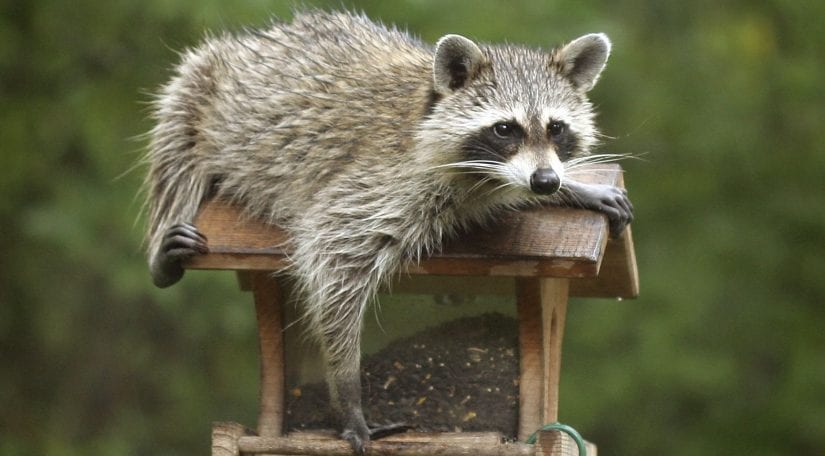
The best solution is to prevent the problem before it starts. Make sure you’re not accidentally giving them food (like pet food, bird seed, fruit trees, fish ponds) or shelter. Make sure your garbage and compost is in wildlife-proof containers. Seal gaps or holes in sheds, crawl spaces, attics and porches before they become a comfy nest or den.
Wildlife removal
Trapping and relocating wildlife is not a permanent or humane solution. Trapping in the wrong season can also orphan babies. If you have to remove an animal, call an AnimalKind company that gently removes them instead of trapping/relocating or killing.
If there are no AnimalKind companies in your area, use the questions above to find a humane pest control company.
Learn more about urban wildlife.
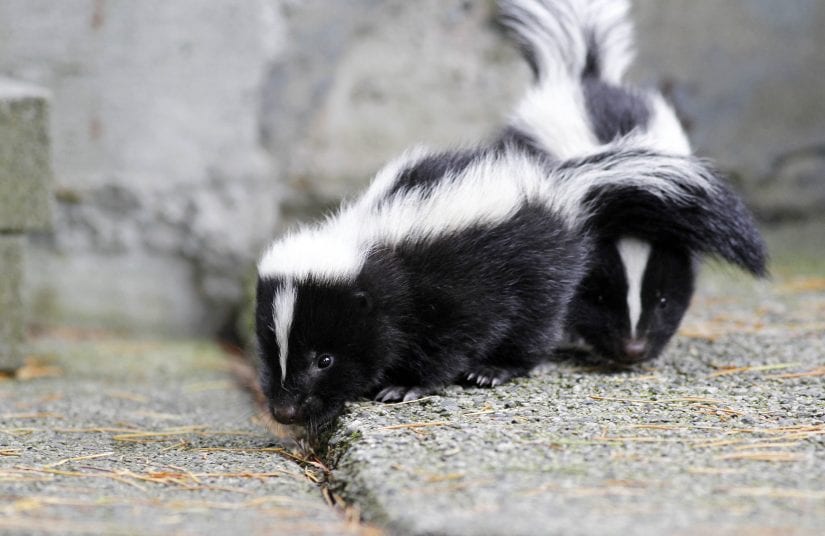
Glueboards, poisons and snap traps
Glueboards or glue traps are plastic or metal trays coated with glue designed to catch rodents. These traps are legal and can be found in stores, but they cause rodents and other animals to suffer tremendously. Birds, small wildlife and even pets can get caught in this sticky situation. Never use glueboards!
Rodent poisons or “rodenticides” are used widely, but they cause a slow and painful death. Rodenticides are also dangerous for owls, eagles and even cats that eat poisoned rodents.
Snap traps cause a quick death for mice and rats, but can be dangerous to wildlife and pets unless they are kept in a locked box or wall interior. Call an AnimalKind company if you need help with mice and rats in your home.
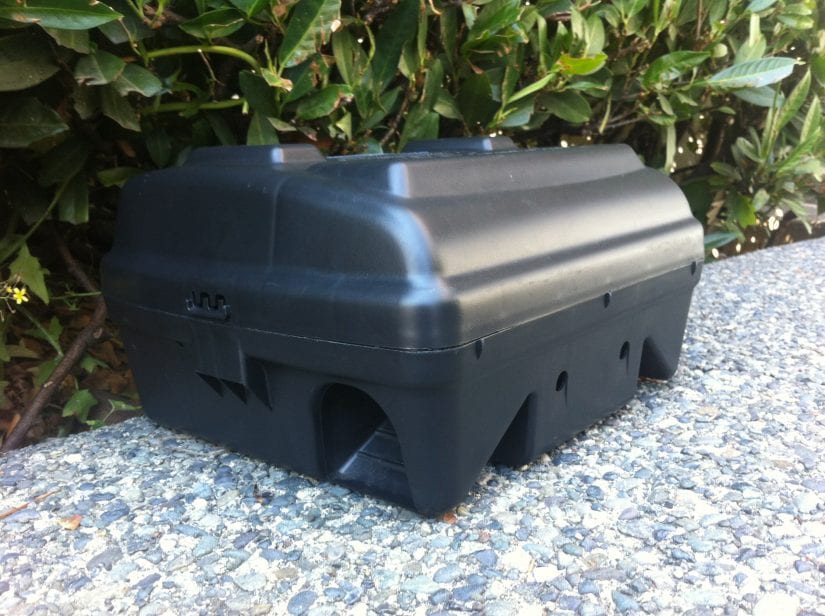
What is “humane”?
Any company can call themselves “humane” – but like many food-labelling claims, it doesn’t necessarily mean they are using animal-friendly methods.
In May 2021, thanks to a grant from the Vancouver Foundation, we conducted a poll* of 860 BC residents and learned “humane pest control” is still misunderstood. The term “humane” used in pest control still varies in definitions among BC residents surveyed since our last 2015 poll**.
When asked, what do you think the term ‘humane’ means in terms of pest control? Respondents could choose more than one response and they said ‘humane’ is:
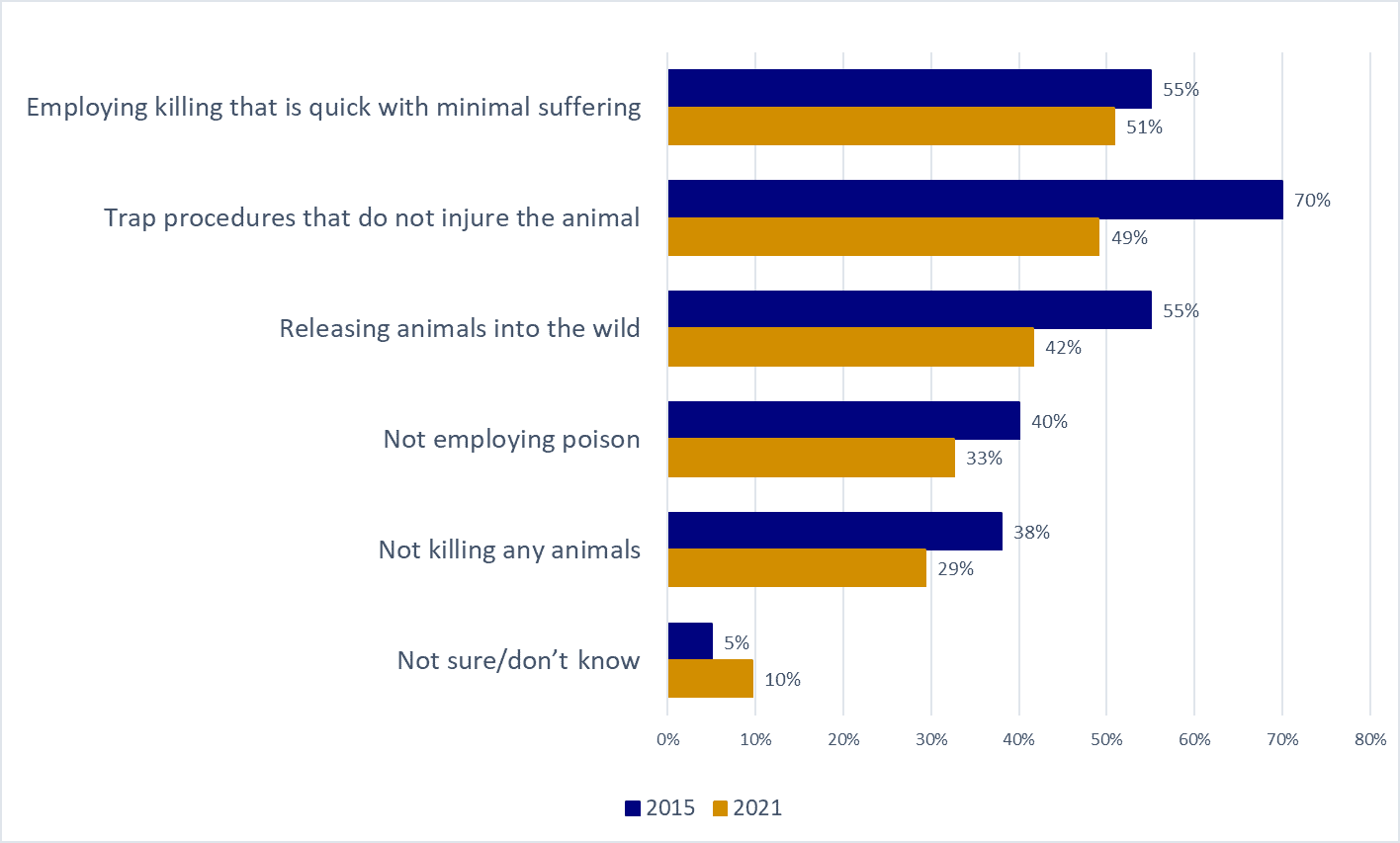
**Vision Critical poll conducted for the BC SPCA September 2015 (n=803, margin of error ±3.4%, 19 times out of 20)
Subscribe to AnimalKind to receive news and updates!
The BC SPCA uses your personal information to update you on our work for animals as well as for advertising and analytics purposes. More information on uses and how to opt-out can be found in our Privacy Policy.
The BC SPCA can’t stop a legally-permitted cull of free-living wildlife from happening in your community. However, the BC SPCA can intervene if the killing methods are inhumane (by law) or if animals are in distress. If you witness an animal in distress during a cull, call our Animal Helpline at 1-855-622-7722. Document evidence by taking videos or photos, but do not trespass on private property or put yourself in danger.
The BC SPCA is opposed to culling animals when there is no evidence to support it, or it can’t be done humanely. The BC SPCA’s primary approach to wildlife conflicts is coexistence, and changing human behaviour to prevent problems. International and BC SPCA experts agree there are many steps that must first be taken to justify ethical wildlife control.
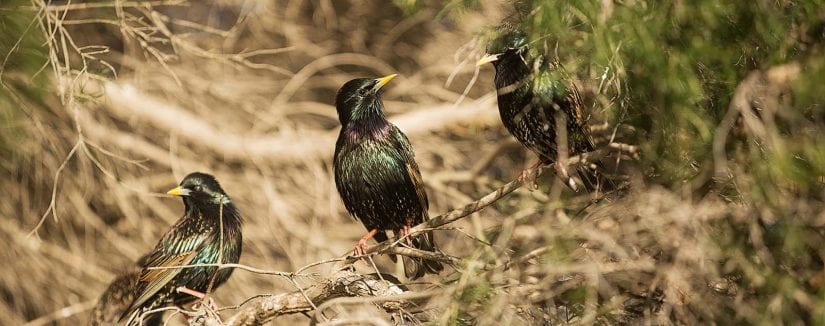
Deer culls
The BC SPCA recommends using non-lethal strategies to solve human-deer conflict. Communities should aim to prevent conflict by educating residents about coexisting with urban deer. Culling is an inefficient, short-term solution and should not be a default practice.
Read our position statement on urban deer.
Download our urban deer pamphlet (PDF).
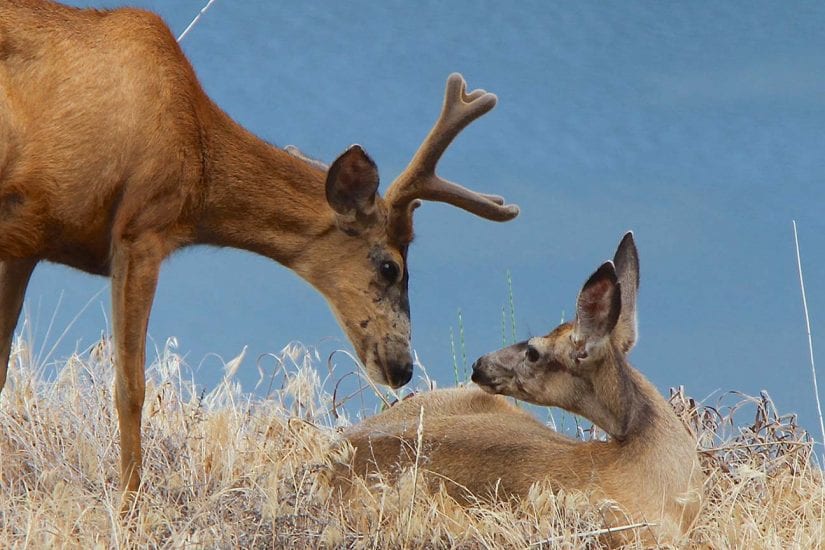
Geese and other bird culls
The BC SPCA recommends hazing and environmental modifications to prevent conflicts with birds, as well as providing education that discourages feeding by the public. When appropriate, fertility control is a non-lethal way to limit reproduction, though permits are generally required.
Read our best practice sheets for:
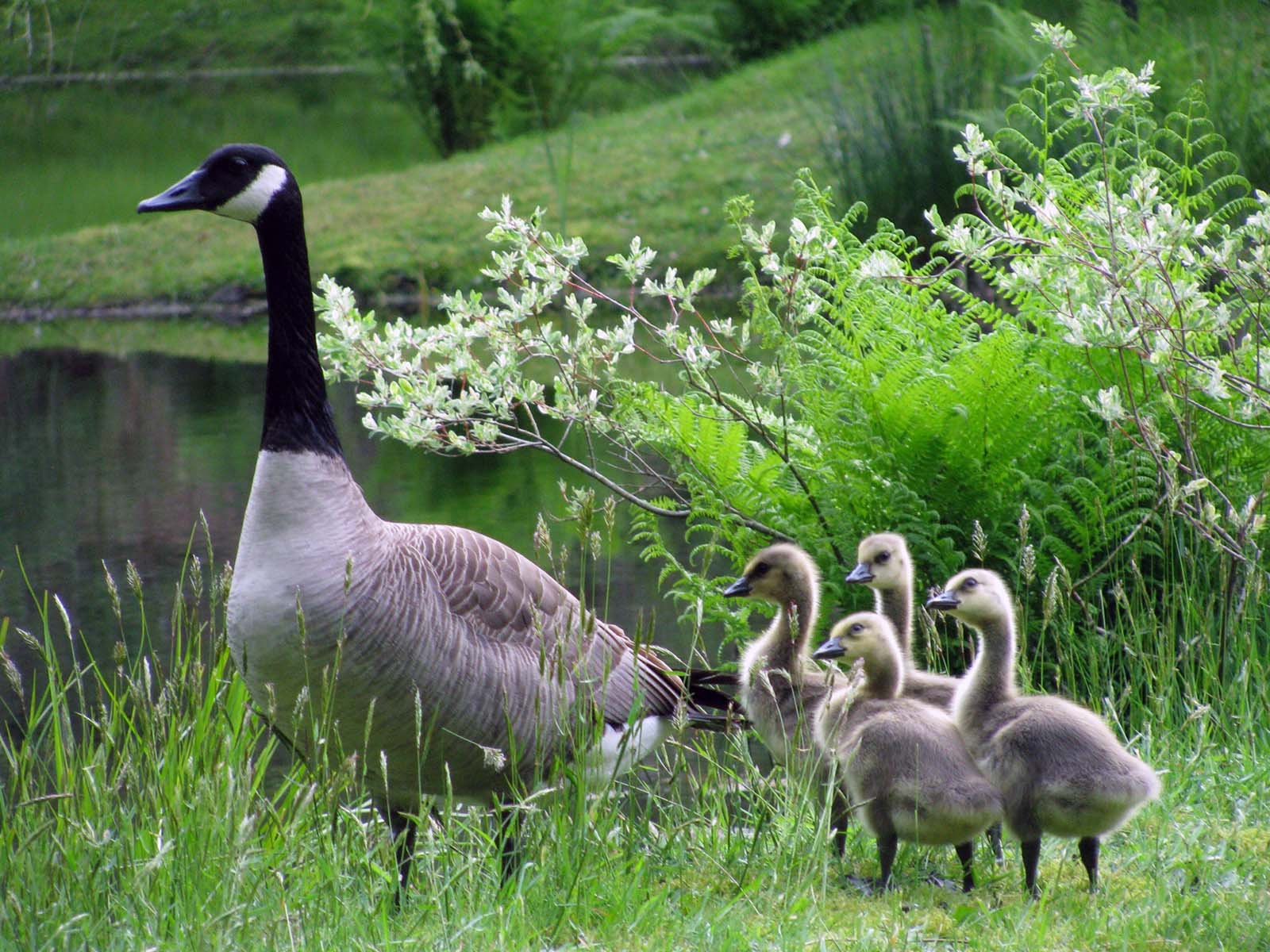
Wolf culls
Wolf culls in B.C. and Alberta have drawn significant criticism. Experts criticize the inhumane methods and lack of evidence that killing wolves will save caribou or other species. Culling can break up wolf pack structures and create an imbalance with other species in the area. Even with skilled shooters, shooting wolves from helicopters can cause stress and death may not be quick and painless.
Read our position statement on predator control.
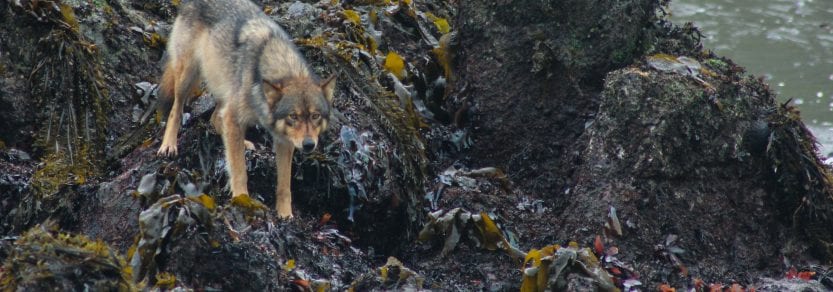
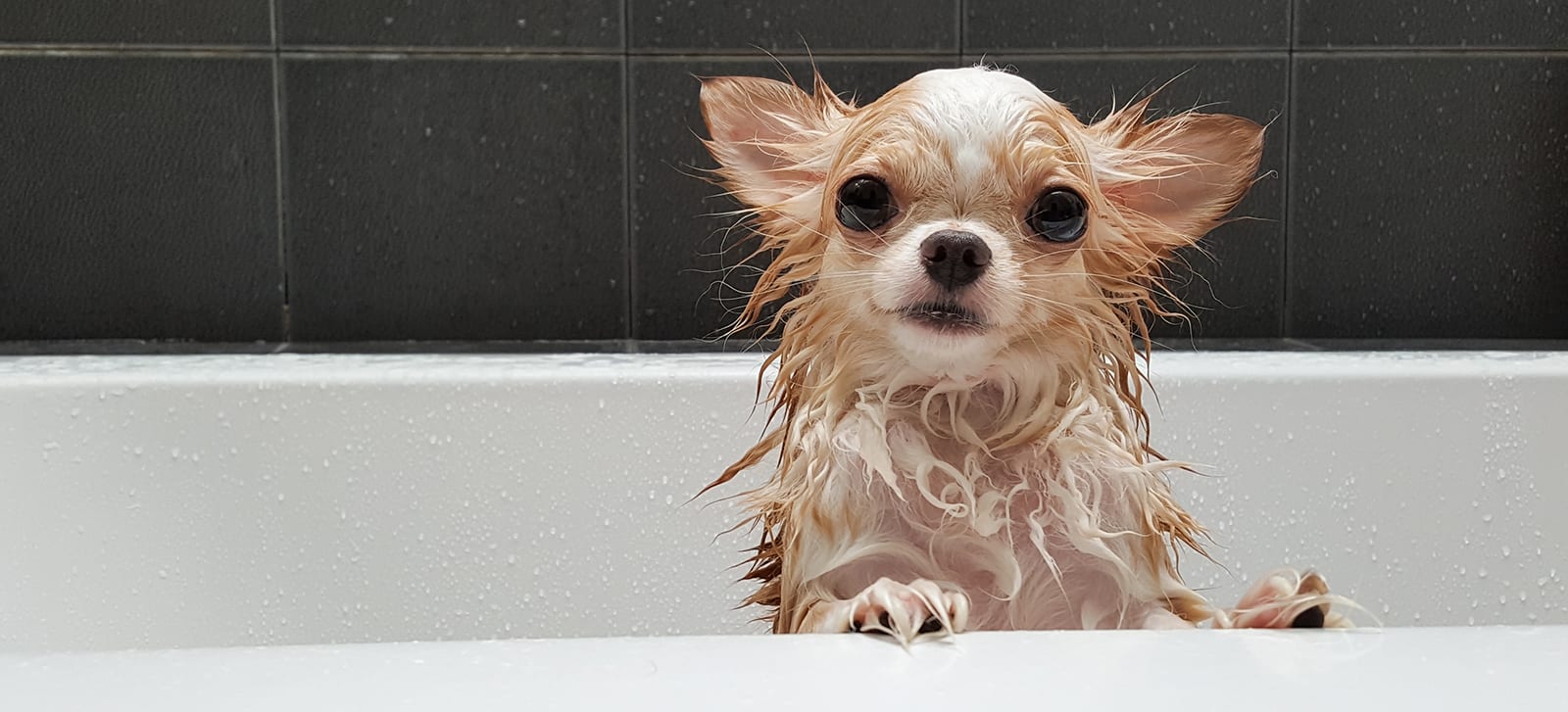
It is pretty common for a dog to get skunked – they’re curious creatures and that can lead to a spritz or a full-on soaking of an intense, foul-smelling spray from the skunk.
How to remove skunk smell:
- 1 litre of 3 per cent hydrogen peroxide
- ¼ cup baking soda
- 1 tsp liquid dish soap, such as Dawn
Combine ingredients and shampoo your pet. Rinse with water and repeat if necessary.
Skunk spray is often centred around the facial area. Avoid your pet’s eyes when using the solution on the face. If any product does get into your pet’s eyes, it’s important to rinse the area very well.
In future, be proactive
Skunks are nocturnal animals with poor eyesight and limited climbing skills. They only use their spray as a last resort when startled, cornered, or attacked. If you see a skunk, back away slowly and quietly to avoid a spray. Keep your dog on a leash when you’re out walking in low light.
Learn more about coexisting with skunks.
